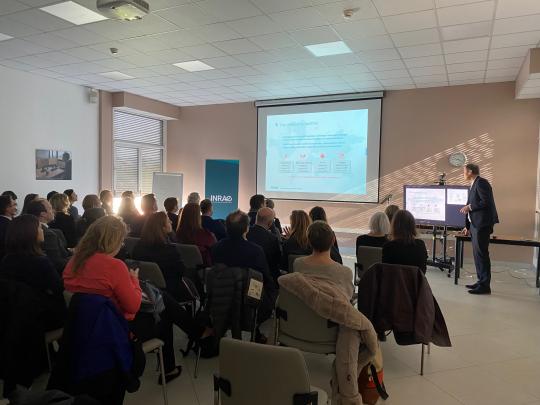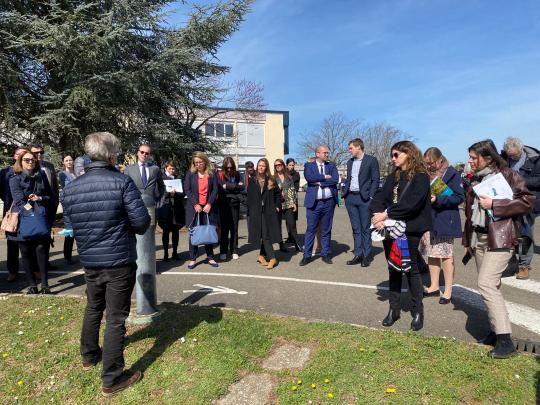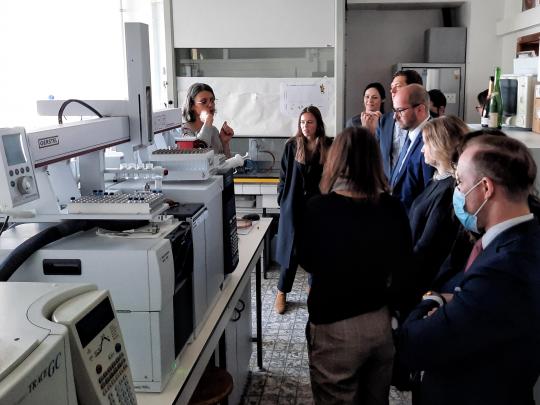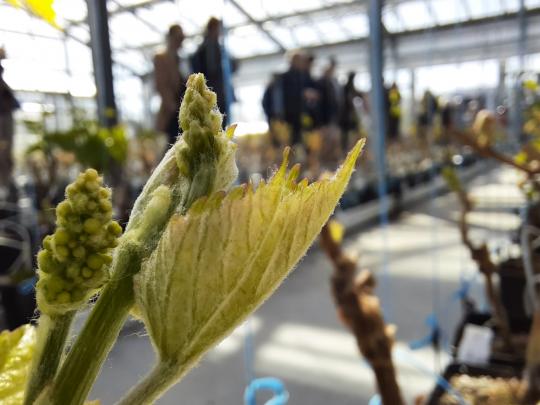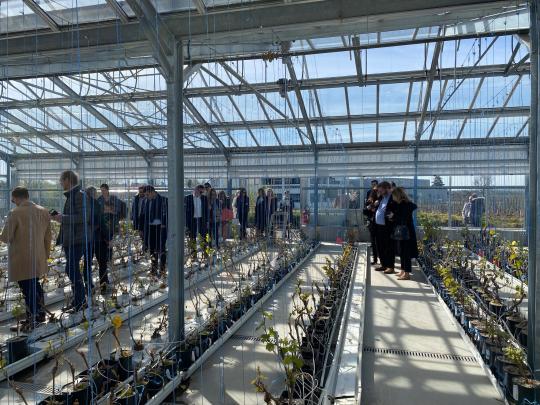Society and regional strategies Reading time 3 min
Visit of the European experts of the Council of the European Union Working Party on Research
Published on 12 April 2022
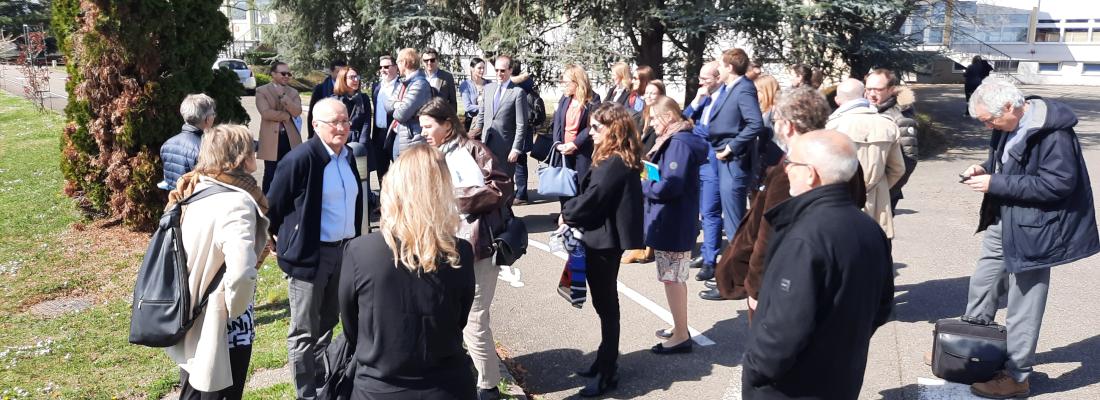
On Monday 11 April 2022, the 28 European experts of the Council of the European Union’s Working Party on Research, tasked with advising and representing their governments on European research and innovation policy, visited INRAE’s Grand-Est - Colmar Centre.
The experts were accompanied by Jean-François Soussana, INRAE’s Vice-President of International Policy; Isabelle Albouy, INRAE’s Head of European Affairs; Anne Puech from the French Ministry of Higher Education, Research and Innovation; Serge Kauffmann, President of the INRAE Grand-Est - Colmar Centre, as well as researchers and technicians from the Centre.
This visit focused on the research response to the Green Deal (a set of policy initiatives proposed by the European Commission to reduce net greenhouse gas emissions by at least 55% by 2030). The visit allowed the European experts in attendance to learn more about INRAE’s scientific priorities and discover the centre’s experimental platforms. Special attention was paid to the metabolomics platform and RESDUR, a programme developed in partnership with Institut français de la vigne et du vin (IFV) aimed at reducing the use of pesticides in vineyards by producing disease-resistant grape varieties.
